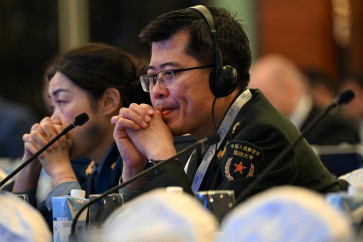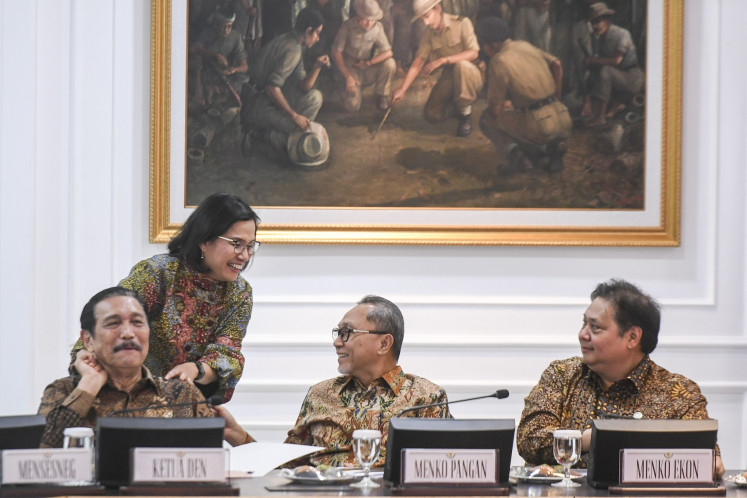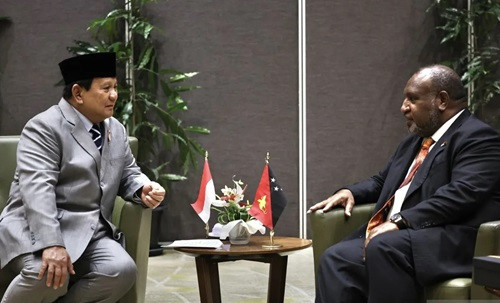Alibaba's Singles’ Day sales grow only 8.5 percent
Change text size
Gift Premium Articles
to Anyone

A
libaba Group Holding Ltd. said on Friday that sales during its annual Singles' Day shopping frenzy grew 8.5 percent, the slowest rate ever, underscoring strong regulatory and supply chain headwinds for China's tech firms.
The Chinese e-commerce juggernaut said sales, or gross merchandise value (GMV), over its 11-day Singles' Day event that ended on Thursday rose to 540.3 billion yuan (US$84.5 billion), compared with 26 percent growth last year.
Sales had grown by double digits every year since Alibaba founded the festival in 2009 and built it into the world's biggest online sales fest, dwarfing Cyber Monday in the United States. It changed the gala to a multi-day event last year.
The results come as overall consumption in China slows and cap a relatively muted version of a sales festival that Alibaba once aggressively promoted.
Before the sales period began, analysts had said they expected Alibaba to report only a minor increase in GMV this year, citing slowing retail sales, supply shortages, power disruptions and COVID-19 lockdowns.
The festival, which Alibaba last year stretched to an 11-day event with the best deals concentrated in two discount periods, Nov. 1 to 3 and Nov. 11, has become a closely watched gauge of consumer sentiment in the world's second-largest economy.
This year, Alibaba played down its sales figures and touted its social welfare initiatives in the final hours of its Singles' Day festival on Thursday, marking a shift in tone for the highly publicized event.
Eschewing a rolling tally tracking transactions that had taken center stage in previous years, Alibaba urged viewers of a three-hour livestream to click "like" and help raise 1 million yuan for a 200-acre (81-hectare) elephant reserve in China's rural southwest.
The e-commerce giant has toned down the marketing hype amid ongoing regulatory tightening from Chinese authorities, saying its focus was on sustainable growth this year.
In previous years, Alibaba would tout Chinese consumers' demand for washing machines, smartphones and makeup with a night-long presentation of statistics. But this year it used its gala to highlight initiatives such as a program that assists disabled individuals in buying apparel and efforts to use more environmentally friendly packaging.
Still, the event remains a top draw for millions of merchants and shoppers, with flashy deals and live-streamers hawking products from skincare products to sports shoes on Alibaba's platforms, including its Taobao and Tmall marketplaces.
Alibaba said that nearly 400 brands, including Apple Inc. and L'Oreal SA, had raked in more than $15 million in sales each by mid-day on Thursday.
The shopping event comes after a year of ongoing regulatory tightening from Chinese authorities in several industries, during which Alibaba was a frequent target.
The e-commerce giant was fined a record $2.8 billion for monopolistic behavior in April, and its founder, Jack Ma, China's highest-profile entrepreneur, has retreated from public view after criticizing Chinese regulators a year ago.
On Wednesday, its rival Tencent Holdings posted its slowest revenue growth since it went public in 2004, hurt by a regulatory crackdown.
‘Worship of turnover’
Meanwhile, the focus of the Singles' Day shopping festival should shift from a "traffic and sales war" to one of science and technology, a state-backed newspaper said on Friday, describing the "worship of turnover" as incompatible with China's new development path.
The article in Securities Daily comes a day after the annual shopping blitz spearheaded by Alibaba Group, which recorded 540.3 billion yuan in orders over the 11-day event.
The newspaper said the event had achieved many years of record-breaking sales but had also given rise to practices such as spam text messaging of users, unfair competition and merchants faking discounts.
The model had become one in which it was hard to achieve "breakthrough innovations", the paper said.
By using low prices as a selling point, platforms and merchants were stimulating "low-level" consumption, which was in not in line with China's goals to achieve high-quality development, it added.
"The 'worship of turnover' is not only unsustainable in terms of digital growth but is also inextricably linked to chaos," the newspaper said.
It said that it hoped to see Singles' Day become a festival for platforms and businesses to showcase innovative achievements, and eventually even higher pursuits.
"I hope that one day, China's internet giants will no longer focus on the business of mom-and-pop shops but will be able to walk toward space in their own private rocket," the article's writer said, pointing to Amazon founder Jeff Bezos' and Tesla founder Elon Musk's rocket projects as examples.
Alibaba and JD.com did not immediately respond to a request for comment.









